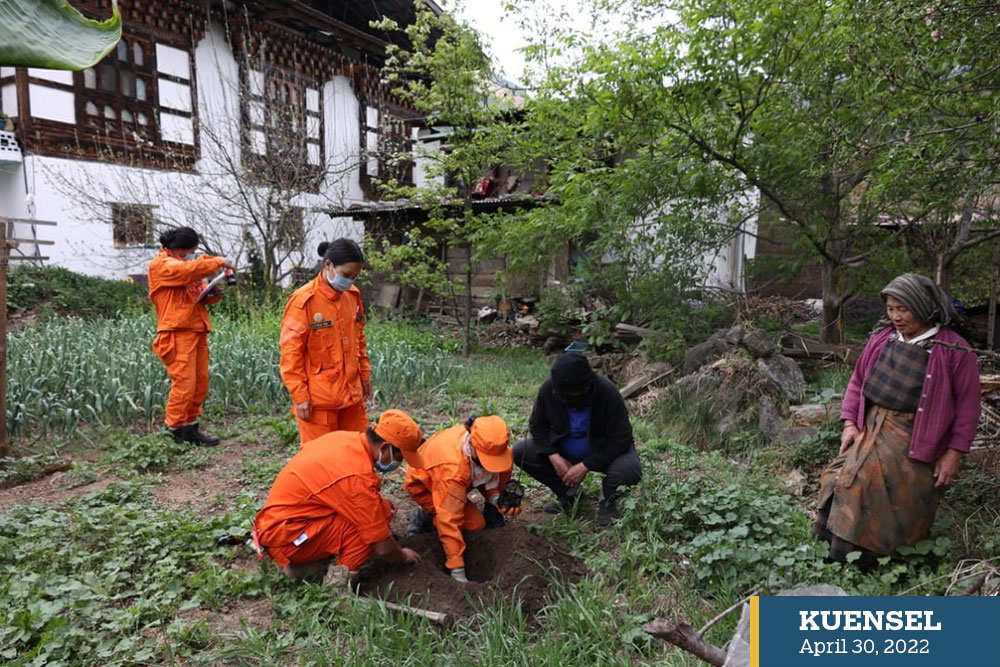Chhimi Dema
Kinley Bidha, a farmer from Haa, received five fruit trees a month ago as part of the De-suung National Service: Million Fruit Tree initiative.
She is among the 46,748 households who received the saplings.
The trees are growing healthy except for some, she said. “Hearing that this initiative is a gift from His Majesty, I want to take care of the saplings. I will ensure that they bear fruits.”
The Million Fruit Tree initiative was launched on March 15 by the Ministry of Agriculture and Forests with support from the De-suung National Service.
Under the initiative, a total of 414,000 fruit trees and 5,000 bodhi trees were planted in temperate regions of the country as of April 28.
The plantation in the sub-tropical regions began on April 25; the target plantation is 550,000 trees.
The three-month initiative targets to plant one million fruit trees that would produce 33,391 metric tonnes of fruits after three to four years.
The fruit trees planted in the temperate zones are pecan nut, persimmon, plum, walnut, almond, apple, apricot, chestnut, kiwi, peach, pear, and cherry.
Nine varieties of fruit trees consisting of dragon fruit, guava, lychee, mango, passion fruit, pomegranate, avocado, banana, and citrus are distributed for plantation in the sub-tropical region.
Department of Agriculture’s director, Yonten Gyamtsho, said that fruit trees were selected considering their market value for export in niche markets in Asia such as Singapore and Thailand.
“The varieties of the trees are high-yielding aiming at economic prospects for the farmers,” he said.
The initiative is expected to benefit rural households. So far, 46,748 households and 9,300 tree saplings were distributed to schools.
“The Million Fruit Plantation is a vision of His Majesty The King to enhance farmers’ income and nutrition,” stated the ministry on its Facebook page.
Although the expected plantation target in the temperate region was 405,000 trees, some tree saplings were affected during transportation.
Yonten Gyamtsho said that the ministry’s regional farms were instructed to propagate the plants to replace those that did not survive. “We want to ensure that one million trees are in the field and fruit after three years.”
Some saplings were sourced locally and others were imported.
The sites of plantation are geo-coded using smart app mobile operation and data acquisition to monitor care and growth.
For the initiative, 233 de-suups were trained in land preparation for fruit tree plantation and management; and 1,334 more de-suups would be guided by the trained de-suups.


